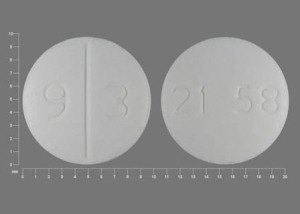 New Health Guide
New Health Guide
Trimethoprim pronounced as tri-meth-oh-prim is a medication used in the treatment of bacterial infections. Its mode of action is by killing certain types of bacteria. To identify whether the tablet is suitable for you, keep clear about the action mechanism of trimethoprim tablets and possible side effects.
Trimethoprim tablets, an antibiotic, act by preventing the production of folate by the bacteria. This folate is essential for the bacteria to synthesize their DNA and multiply, as they cannot use the folic acid available through diet. When the folate production does not happen, no new bacteria are produced and the infection does not spread. The remaining bacteria get killed by the immune system of the body. The type of bacteria, however, needs to be determined prior to treatment by taking a tissue sample like urine or sputum.
The trimethoprim tablets can be used to treat conditions like urinary tract infection caused by bacteria, prevent recurring UTIs and treat acute bronchitis, chronic bronchitis flare up, pneumonia caused by Pneumocystis jirovecii.
Trimethoprim tablets should be taken with care and the doctor should be informed of the entire medical history before this medicine is prescribed. The medicine may become unsuitable over a period of time as well. The medicine may or may not be prescribed to some individuals and a lot of care is taken before prescribing it, e.g. in below cases:

The label provided along with the tablets should be read carefully before taking the medicine to be aware of how to take the medicine and the full list of possible side effects.
The medicine should be taken only as prescribed as it depends on whether it is being given for treating infection or for preventive measures. 200 mg twice daily for infection and 100 mg once for prevention is the dosage for adults. Children are prescribed liquid medicine and dose should be correctly measured.
There should be gap of 12 hours between each dose when prescribed twice daily and can be taken before or after meals.
To prevent recurrence of infection, it is important to complete the course given which can last from 3-14 days. You should stop only if told to by the doctor.
Avoid missing a dose. When you do forget, take it immediately when you remember. However, if you remember only at the time of second dose, miss the first dose. Never take 2 doses together.
Medicines usually have certain side effects associated with them. Given below are some of the known side effects of trimethoprim tablets, however, not all people would experience these side effects:
Some medicines might interact with trimethoprim tablets, hence it is important to inform the doctor about all the medicine you might be taking. The medicines which can interact with trimethoprim are given below:
Certain conditions might also interact with trimethoprim tablets. The doctor or pharmacist should be informed of any such condition: